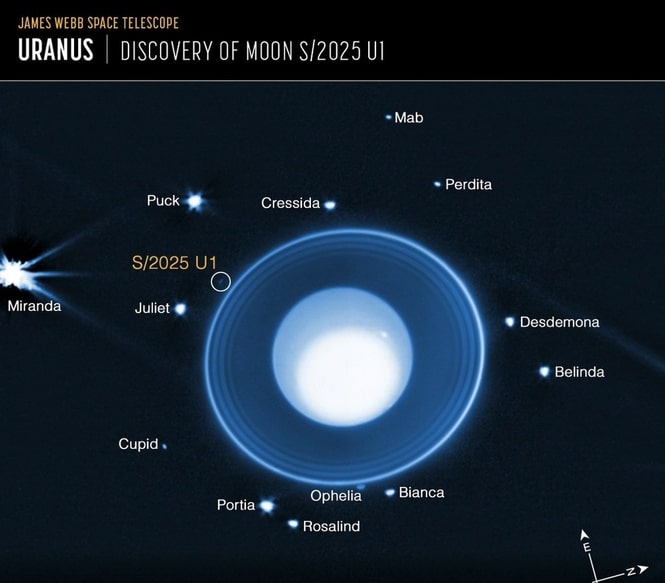Introducing the 29th Moon Found at Uranus!
The Groundbreaking Discovery at Uranus
NASA’s James Webb Space Telescope, renowned for its unparalleled clarity and reach, has once again delivered a breakthrough in cosmic exploration. The discovery of the 29th moon orbiting Uranus pushes the boundaries of what we know about our celestial neighborhood.
"Each discovery is a new chapter in our understanding of the vast cosmos," noted a spokesperson from NASA.
The Team Behind the Discovery
The research was spearheaded by the Southwest Research Institute (SwRI), an institution at the forefront of space exploration. Their collaborative efforts with NASA highlight the potential for future astronomical breakthroughs through the synergy of powerful technology and dedicated research.
Why This Discovery is Monumental
- Enhances our understanding of the Uranian system.
- Provides insight into the formation of moons and planets.
- Opens new avenues for research utilizing the James Webb Space Telescope.
Understanding these distant moons can offer clues about the early solar system and the dynamics that have shaped our planetary neighbors. Such missions could potentially lead to untapping new scientific and exploratory routes, much like how the discovery of water on Mars galvanized research on the red planet.

Implications for Future Discoveries
The discovery doesn't just add to the list of Uranus's moons; it potentially sets the stage for further explorations which could uncover even more celestial bodies in unknown terrains. The James Webb Space Telescope, a marvel of modern technology, will continue to amplify our insights into the cosmos. This momentous discovery further underscores the intricate tapestry of space that remains to be explored.
Explore Telescopes on AmazonFor astronomy enthusiasts and researchers alike, these findings rekindle the passion and curiosity for what lies beyond. Each discovery enhances our collective narrative of the universe and increases anticipation for what the James Webb Space Telescope will uncover next.
Learn more about NASA's missions